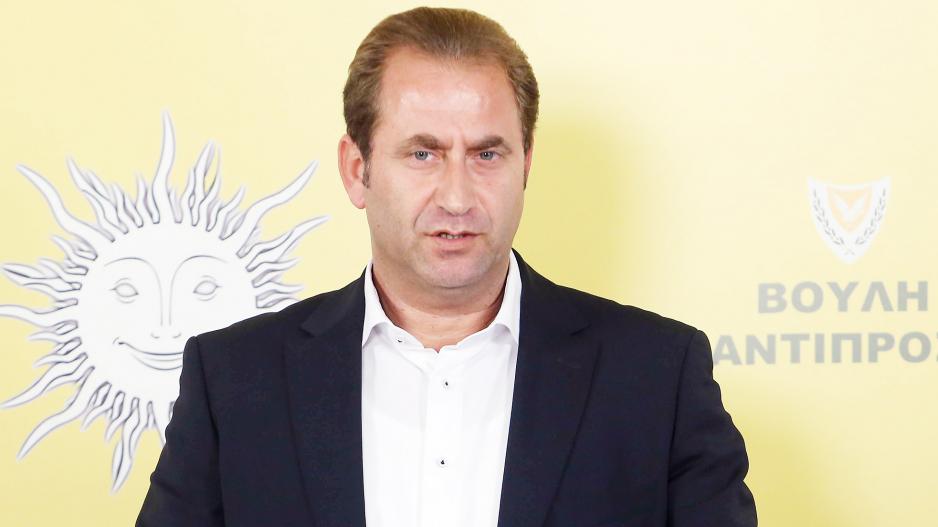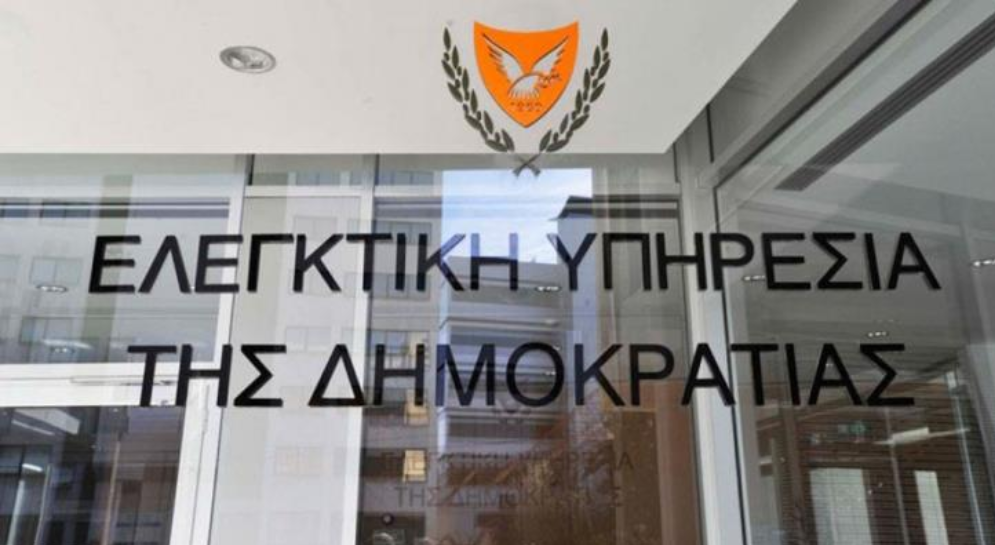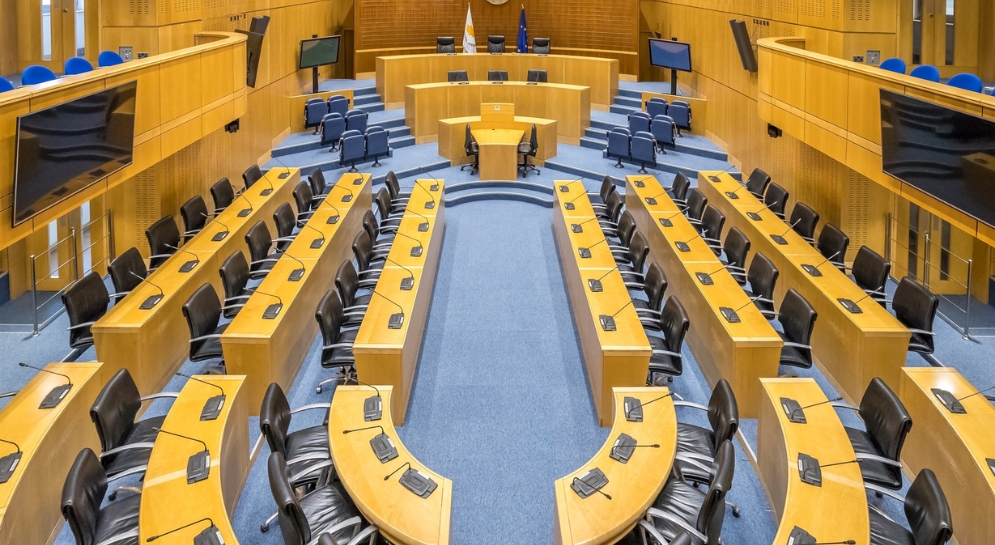
Interview with Giorgos Loukaides, member of the Political Bureau of AKEL on the upcoming presidential elections and AKEL
Sunday 15 May 2022, ‘Politis’ newspaper
“As a matter of fact, up to this moment at least, it is clear that we will have three main candidates in the upcoming presidential elections, but only two options”, AKEL MP and Parliamentary Representative Giorgos Loukaides pointed out, referring to the candidacies of DISY President Averof Neophytou, Andreas Mavroyiannis (if AKEL’s decisions are finalised) and Nikos Christodoulides (Note: former Foreign Minister in the Anastasiades government).
In an interview with “Politis” newspaper, G.Loukaides refers to “the choice of continuing the Anastasiades – DISY government with one of its two leading members or the choice of Andreas Mavroyiannis, a candidate who can effectively express and represent those seeking progressive change”. A choice “that can unite society and in particular address those who are dissatisfied with this administration and the deadlocks it has created, and look forward to a new beginning and the restoration of the credibility and dignity of our country and people”, he adds.
With regards the announcement by Mr. Christodoulides of his own candidacy for the upcoming presidential election, as a general comment, Giorgos Loukaides reiterates the narrative about “two sides of the Anastasiades – DISY government”. On the other hand, adds the AKEL leading official, “we naturally expected Nikos Christodoulides, in announcing his candidacy, to begin by accounting for the actions of the government he himself had served, supported, participated in its decisions, defended and covered up”, in his words.
“Instead, we followed N.Christodoulides proceeding to now make assumptions, after nine years when he was part of the government formation, about all that troubles our people and society. It was as if he was absent abroad. But, on these serious problems, which seemed that he ascertained them for the first time, he is co-responsible for causing them or for not addressing them,” Giorgos Loukaides said.
Consequently, he continues, “as is the case with Averof Neophytou too, when Mr. Christodoulides outlined his “vision” the day before yesterday in a very vague way and without saying anything in essence, the question arises as to whether he has the necessary credibility to proceed to solve these problems that plague society, since as a prominent member of the government he is part of these very problems”, Giorgos Loukaides stressed.
QUESTION: What are the differences between Mavroyiannis and Christodoulides on the Cyprus problem? Both were close assistants of President Anastasiades.
GL: First of all, they had very different roles in the handling of the Cyprus problem and/or on foreign policy. As far as the Cyprus problem is concerned, Mavroyiannis was not a member of the government and did not take decisions, but was appointed as a negotiator on behalf of the Greek Cypriot community, indeed with the unanimous approval of the National Council (Note: an advisory body to the President of the Republic on the Cyprus problem composed of parliamentary parties). At the same time, he had no role in the formulation of decisions on foreign policy.
Mr. Christodoulides, as Minister of Foreign Affairs, among other things, is blamed for the failures and reckless assessments he made regarding Turkey’s intentions on Famagusta, the erroneous misjudgments regarding Turkey’s ability to conduct explorations in the Exclusive Economic Zone of the Republic of Cyprus, the misjudgments regarding supposed imposition of sanctions (by the EU) that would hurt Turkey, and for handlings that in the end led to Cyprus’ complete isolation within the European Union and to do a U-turn.
Mr. Mavroyiannis, on the contrary, with regards the issue of Famagusta, to cite just one example, warned very early on about measures and actions that needed to be taken. More specifically, however, with regard to the Cyprus problem, at least as far as what is known to date, unlike Mr. Christodoulides, who in no way distanced himself from President Anastasiades on anything, Mr. Mavroyiannis in public and when it was least expected, spoke of the collapse of the Greek Cypriot side’s narrative and of the picture of untrustworthiness that Cyprus has internationally.
As far as the future handling of the Cyprus problem is concerned, which is clearly even more important, a different approach is already being recorded there too. More specifically, speaking to you on “Politis” radio, Mr. Mavroyiannis stressed the need to respect the body of work agreed at the negotiations in its entirety, while at the same time we must of course continue to assert the best possible arrangements on the individual open issues.
On his part, Mr. Christodoulides confined himself to making a vague reference to bizonal, bicommunal federation, without even referring to political equality.
QUESTION: AKEL criticises Christodoulides for having stood by President Anastasiades at the time of the ‘golden’ passports scheme. Mavroyiannis was next to President Anastasiades during the time of the two states issue. One has the same responsibility as the other…
GL: Mr. Christodoulides, as a leading government official, as I have already said, is responsible for everything this government has done or not done over the last nine years. It is not only that he was involved and took decisions in connection with the ‘golden’ passport industry, within the framework of a government that in the public’s perception is now viewed as a government of corruption and entanglement/interwoven interests.
Mr. Christodoulides is by definition co-responsible for decisions on all the key issues of governance. From the underfunding of the public health sector over many years, to the undermining of institutions and the dismembering of the rule of law. From the policies that served powerful interests, at the expense of the many and underprivileged, but also to the detriment of nature and the environment, to the shortcomings in social policy and deadlocks and setbacks evident in education.
On the other hand, as I have also mentioned, Mr. Mavroyiannis has never been a member of the government, except during the Demetris Christofias government when he was appointed Deputy Minister for European Affairs. For that reason he should only be judged on what concerns his role and responsibilities.
But on this specific question too, concerning Mr. Anastasiades’ behind-the-scenes flirtation with a two states solution, which the President shared with many of his interlocutors, you will find an interview of Mr. Mavroyiannis some years ago criticizing and characterising as “ridiculous” all the talk about a two state solution
QUESTION: How is the discussion in the Party grassroots organisations about the candidacy of Mavroyiannis going?
GL: The discussion among party members is proceeding in a particularly positive way on the proposal that the Central Committee of AKEL has put before them. Once this procedure – which includes, in addition to the free expression of opinions and concerns, a secret ballot – is completed, the process of evaluating the discussion and vote procedure in the AKEL District Committees, in the Political Bureau and finally, again in the Central Committee, which will convene to submit the final recommendation to the Extraordinary Pancyprian Party Conference to be held on 5 June, will follow.
The final decision will be taken at the Extraordinary Party Conference after discussion and secret ballot. We are referring to procedures that not only are not similar to any other party formation, but that do not even resemble.
QUESTION: There has been criticism from members on social media that they have no choice, that it is a ‘take it or leave it’ decision and that this isn’t democratic.
GL: Party members have the possibility to reject the Central Committee’s proposal-recommendation, for whatever reasons each member is driven to that position. If there is a rejection of the motion by a large margin, then the Central Committee is obliged to revise its recommendation. Furthermore, party members are free to freely counter-propose another or other recommendations.
As I have mentioned, up to now, the overwhelming majority of party members have embraced the proposal-recommendation submitted by the Central Committee.
QUESTION: Why didn’t you manage to come to an agreement with the Democratic Party (DIKO) on the presidential election?
GL: I believe that there was a sincere willingness and desire on both sides to work together from the first round of the presidential elections. Of course, we have said from the beginning that it is one thing to demonstrate a will and another thing to turn that will into a concrete result. The main reason why this effort did not succeed has to do with the different terms that each party set right up to the end with regards the person of the candidate. The unsuccessful effort did not lead to a blame game, but instead sought to maintain the bridges of communication and cooperation that had been built.
As far as AKEL is concerned, our intention is to keep these bridges solid to the very end. We believe that the Central Committee’s proposal for the independent, cross-party candidacy of Andreas Mavroyiannis, with the characteristics he possesses, also serves this purpose, enabling the rallying and joint path of forces with the other opposition parties, social movements and citizens not affiliated to any party who are seeking change in the governance of the country.
QUESTION: Why does the left seek candidates from the centre-right? And don’t tell me it’s to secure alliances…
GL: You have given the answer with your question whereupon, yes, that’s what I will tell you. As we have done accordingly and correspondingly in numerous elections since the establishment of the Republic of Cyprus and since then, our goal isn’t to record our strength as a party in these elections. The principal goal that was set from the very beginning was and remains to unite forces with all those seeking change in government. Or at least, we on our part should take all the necessary steps in this direction, facilitating such a perspective, regardless of whether other political forces will eventually do the same.
It is on the basis of this rationale that the Central Committee of AKEL unanimously set out the political framework in view of the presidential elections, a framework that was also approved by the Party’s members at the grassroots Party general assemblies which convened in February.
The Central Committee’s proposal for the candidacy of Andreas Mavroyiannis is of such a nature, which has the element of transcendence, aiming to facilitate cooperation with broader forces, without in any way whatsoever nullifying the fundamental programmatic positions and sensitivities that AKEL maintains on all the key issues that concern our country and people.
On the contrary, with Mr. Mavroyiannis, who declares that he belongs to the progressive spectrum, we ascertain a broad convergence of views and a willingness on his part to contribute to the final formulation of the programmatic positions that he will present. We of course do not expect, nor was it at stake, an absolute convergence of views.




